
HOW TO SLEEP WELL AT ODD HOURS MEET THE TRAUMA PATIENT NAVIGATOR EMERGENCY SERVICES CLOSER TO HOME healthytogether Winter 2023 A Publication of JERSEY CITY MEDICAL CENTER BETTER WOMEN’S HEALTH AT EVERY AGE
“As we enter into 2023 with a renewed sense of purpose, accomplishment and optimism, it’s a great time to focus on getting and staying healthy by making preventive care a priority. And we’re making it easier for you to do all of these things at RWJBarnabas Health. We’ve welcomed even more nationally recognized clinicians; expanded telehealth; built ambulatory and satellite facilities so that our patients can receive healthcare closer to home; and we continue to improve, expand and modernize our facilities with state-of-the-art equipment and technology. We wish you the best of health in the New Year.”
MARK E. MANIGAN PRESIDENT AND CHIEF EXECUTIVE OFFICER, RWJBARNABAS HEALTH
“In Hudson County, Jersey City Medical Center will set you up for healthcare success! We will pair you with one of our primary care physicians to ensure that you and your family are able to maintain a regular relationship with a provider for routine services or to manage a chronic illness. Our provider network is growing, which means an expanded imprint in Hudson County, making healthcare more convenient for you.”
MICHAEL PRILUTSKY PRESIDENT AND CHIEF EXECUTIVE OFFICER, JERSEY CITY MEDICAL CENTER
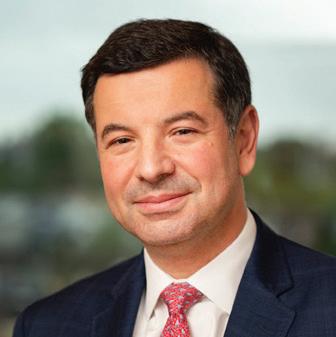
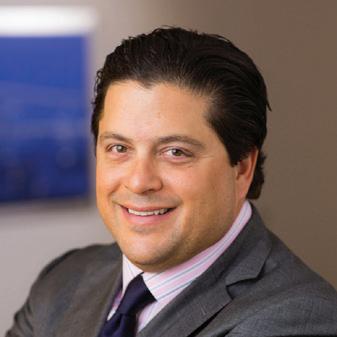
355 Grand St., Jersey City, NJ 07302 201.915.2000 | www.rwjbh.org/jerseycity
@JerseyCityMedicalCenter
@JCMedCenter
Jersey City Medical Center complies with applicable federal civil rights laws and does not discriminate on the basis of race, color, national origin, age, disability or sex. For more information, see link on our home page at www.rwjbh.org/jerseycity. Jersey City Medical Center cumple con las leyes federales de derechos civiles aplicables y no discrimina por motivos de raza, color, nacionalidad, edad, discapacidad o sexo. ATENCIÓN: Si usted habla español, servicios de asistencia lingüística, de forma gratuita, están disponibles para usted. Llame al 201.915.2000. Jersey City Medical Center konfòm ak lwa sou dwa sivil federal ki aplikab yo e li pa fè diskriminasyon sou baz ras, koulè, peyi orijin, laj, enfimite oswa sèks. ATANSYON: Si w pale Kreyòl Ayisyen, gen sèvis èd pou lang ki disponib gratis pou ou. Rele 201.915.2000.
For issues regarding delivery of Healthy Together, please write to HTcirculation@wainscotmedia.com.
JERSEY CITY MEDICAL CENTER EXPANDS CANCER CARE WITH ADDITION OF GYNECOLOGIC SURGICAL ONCOLOGISTS
Jersey City Medical Center’s multidisciplinary cancer care program continues to expand with the addition of two gynecologic surgical oncologists to its team of specialists—Lisa Gabor, MD, and Nancy Zhou, MD.
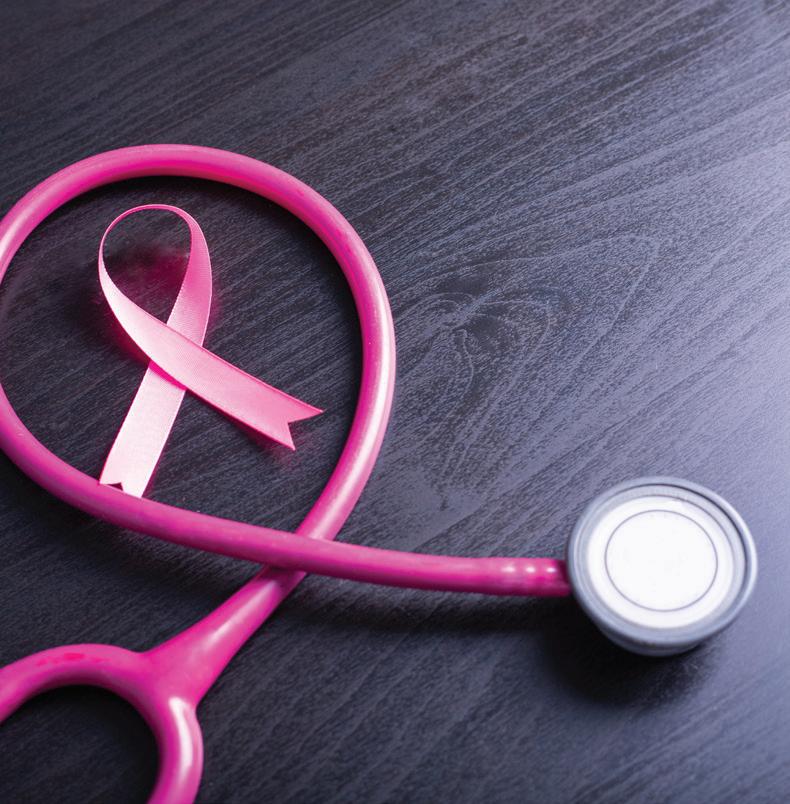
Dr. Gabor completed her obstetrics and gynecology residency at Columbia University Medical Center, New York-Presbyterian and then completed her gynecologic oncology fellowship at the Albert Einstein College of Medicine/ Montefiore Medical Center. Dr. Zhou completed her obstetrics and gynecology residency at New York Medical College, Westchester Medical Center and then completed her gynecologic oncology fellowship at the SUNY Downstate Medical Center.
Dr. Gabor’s and Dr. Zhou’s areas of interest include ovarian cancer, uterine cancer, cervical cancer, vulvar cancer, minimally invasive surgical techniques and clinical trials. Both gynecologic oncologists provide comprehensive care for pre-invasive and invasive gynecologic cancers including minimally invasive procedures, robotic surgery and complex cytoreductive procedures for advanced cancers. The providers are currently seeing patients by appointment at the Madeline Fiadini LoRe Foundation Infusion Center in Jersey City. To schedule an appointment, visit www.rwjbh.org/hudsoncounty.
RWJBarnabas Health CONNECT WITH US ON
HEALTH NEWS HEALTH NEWS
@JCMedCenter Jersey City Medical Center
MESSAGES FROM LEADERSHIP
Healthy Together | 2 | Winter 2023
PREVENTING SUICIDE. What you say and do may help save a life.

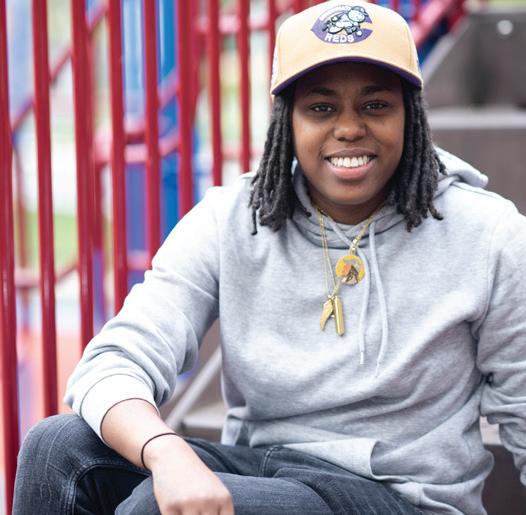
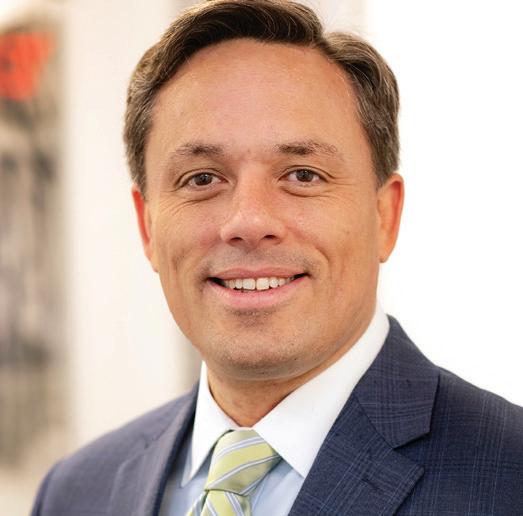
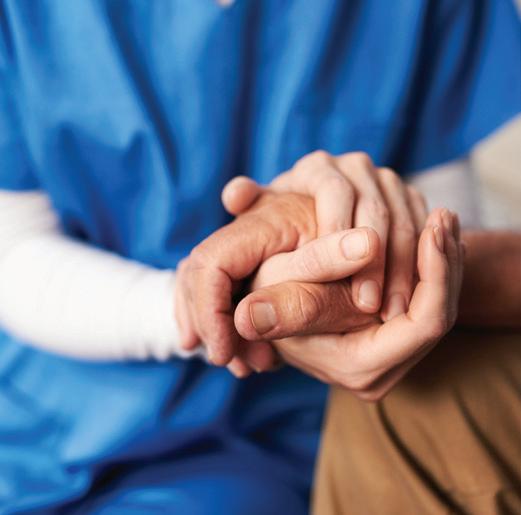



4 18 contents WINTER 2023 healthytogether 23 21 22 20 4. WHAT
5
6.
8.
9.
18.
20.
21.
22.
23.
11.
12.
14.
15.
16.
12 10.
Jersey City Medical Center RWJBH.ORG/JERSEYCITY 3
HEALTHY WOMEN KNOW.
keys to optimal health.
PAIN-FREE AFTER PAD. A hybrid procedure for peripheral arterial disease.
SLEEPING WELL ON THE NIGHT SHIFT. Getting quality sleep when you work odd hours.
EMERGENCY SERVICES IN BAYONNE. JCMC’s satellite emergency department is more than a local hub.
HELPING TO TRANSFORM TRAUMA INTO PURPOSE. Meet Trauma Patient Navigator Lashawn Overton.
ONCOLOGY NURSE NAVIGATORS. Offering resources, guidance and support to cancer patients.
PAYING IT FORWARD. Meet Carlos Lejnieks, Chairman of JCMC’s Board of Trustees.
GAME-DAY EATS. Beyond chips and salsa.
HEMATOLOGY DREAM TEAM. Meet the world-class team of doctors treating blood disorders and cancers.
BETTER WOMEN’S HEALTH AT EVERY AGE. From adolescents to seniors: what every woman needs to know.
SPECIALTY OUTPATIENT CARE FOR KIDS. Children’s Specialized Hospital offers a range of services at 14 locations.
BEYOND BED-WETTING. Treating urologic conditions in children.
BANKING ON LIFE. How, where and when to donate blood this winter.
CARDIO VS. STRENGTH TRAINING. Which is better for heart health? Resolving an old debate.
WHAT HEALTHY WOMEN
Women go through many life stages and their health needs change accordingly. Staying healthy may seem daunting, but it’s not complicated.
“Preventive health is extremely important,” says Nadia Aurora, MD, an obstetrician and gynecologist at Jersey City Medical Center (JCMC). “Beyond having an annual physical— which every woman should do—there are screenings and tests that women should have at
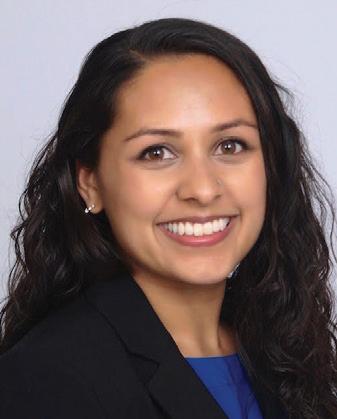

KNOW 5 KEYS TO OPTIMAL HEALTH
Healthy Together | 4 | Winter 2023
NADIA AURORA, MD
different ages, as well as steps they can take on their own, or in tandem with their healthcare provider, to help ward off disease.”
1 Maintain Your Gynecologic and Reproductive Health.
Starting in adolescence, women should have an annual gynecologic checkup that includes a pelvic exam, a Pap smear (generally every one to three years), a breast exam and other age-appropriate screenings, such as HPV tests. “Your needs and priorities will change, of course, as you get older,” says Dr. Aurora. For instance, before a woman becomes sexually active, she should speak with her OB/GYN about birth control options and prevention of sexually transmitted diseases. If she decides to plan a family, she should consult with her doctor about how to prepare her body for pregnancy— and, if she cannot become pregnant, about other options such as fertility treatments. “All women should know how to do breast self-exams,” says Dr. Aurora. “And starting at age 40, women at average risk of breast cancer should have a mammogram every one to two years.”
2 Eat a Healthy Diet.
The adage “you are what you eat” is more than just a cliché. “All women should maintain a healthy diet that, generally speaking, includes a balance of lean protein, healthy fats, complex carbohydrates such as whole grains and a variety of fruits and vegetables,” says Dr. Aurora. Women who have special dietary needs, restrictions or health issues should consult with their primary care provider and/or a registered dietitian or nutritionist. “It’s important to limit salt and sugar intake and to choose fresh foods rather than processed foods whenever possible,” says Dr. Aurora. What you eat affects literally every system in your body, not just your digestion. A balanced diet will also help you maintain a healthy weight. In addition, studies have shown that there is a correlation between the foods you eat and your moods.
3 Exercise Regularly.
“It’s important to do some form of exercise every day,” says Dr. Aurora. While every woman’s needs and abilities
are different, regular exercise is essential for optimal health. Take a walk, ride a bike, swim, dance—just get moving, and aim for at least a half hour of moderate exercise per day, incorporating strength training twice a week. “Being sedentary is not just bad for your heart, it’s also bad for your bones,” says Dr. Aurora. Inadequate exercise can also affect your mental health. Studies have shown that exercise can help alleviate some symptoms of depression, stress and anxiety and can also help with self-esteem. Be sure to check with your healthcare provider about a regimen that’s appropriate for your specific health needs. Stretching is also important, and, for people who have mobility issues, there are options such as chair yoga, which can help alleviate stiffness and keep muscles supple.
4 Get Proper Sleep.
Sleep is more important than many people realize. “It is one of the few things we cannot live without,” says Dr. Aurora. “Like water and oxygen, it is essential to our survival.” Yet the majority of people either do not get enough sleep—usually seven to nine hours a night—or enough quality sleep, which means restful, restorative, uninterrupted sleep. To get restorative sleep, be consistent with your bedtime habits (i.e., try to go to bed and wake up at roughly the same time every day); sleep in a dark room; be sure your bedroom temperature is comfortable and not too warm; avoid large meals, caffeine and alcohol before bedtime; and turn off electronic devices, including your phone. “Exercising during the day will also help you sleep better at night,” says Dr. Aurora.
5 Don’t Neglect Your Mental Health.
Simply put: Mental health is health. Your mind is part of you, and, when it comes to staying healthy, it’s impossible to separate your body and your mind. It’s important to address and manage stress, anxiety and depression and to know when to seek professional help. Exercise, yoga and meditation can help
3 ESSENTIAL TESTS EVERY WOMAN SHOULD HAVE
1. BLOOD PRESSURE TEST. Blood pressure should be tested at your annual physical. A healthy range is generally 120/80. If yours is above normal, your provider will advise you accordingly.
2. LIPID PROFILE. This tests total cholesterol, LDL, HDL and triglycerides and should be done annually.
3. PAP TEST. This test is used to check for changes in cervical cells before they turn into cancer. Pap tests are recommended every one to three years, depending on your overall health and whether you’ve had an abnormal result in the past.
In addition, women should have an annual eye exam and dental exam. Starting at age 40, they should have a mammogram; at age 50, a colonoscopy; and at age 65, a bone density test (for osteoporosis).
alleviate mild symptoms, but if you begin to feel overwhelmed, you should seek professional help. Stress can have a profound effect on your physical health, especially your heart health, because it can induce the release of stress hormones such as cortisol and adrenaline, which in turn cause an increase in blood pressure and injury to the inner layer of your heart vessels (endothelium), leading to a heart attack. “Women may be more susceptible to depression at certain life stages, such as during and after pregnancy and at menopause,” says Dr. Aurora. “Know that you are not alone. If you experience symptoms of depression, help is readily available.” Talk to your provider, who can refer a mental health specialist.
For more information about Women’s Health Services, please visit www.rwjbh.org/hudsoncounty
Jersey City Medical Center RWJBH.ORG/JERSEYCITY 5
PAIN-FREE AND MOBILE AFTER PAD
Robert Martinez, a Jersey City retiree in his mid-60s, noticed that whenever he walked, he would get pain in his left leg. His symptoms continued to worsen until he was unable to walk any measurable distance without having to stop because of the pain. He had complained about the pain to an endocrinologist he’d been seeing for management of his diabetes. “I told her I was getting a lot of pain in
my left calf, and it happened whenever I tried to walk,” Robert, now 68, recalls. “It was she who referred me to Dr. Huang at Jersey City Medical Center [JCMC].”

THE DIAGNOSIS
Vascular surgeon Joe Huang, MD, remembers how difficult it was for Robert to walk. He did an examination and diagnosed Robert with peripheral
arterial disease (PAD), a life- and limbthreatening condition in which narrowed arteries reduce blood flow to the legs or arms, though most often the legs.
“Robert’s symptoms were very consistent with PAD,” says Dr. Huang. “Typically, people with this disease have claudication, which is pain in the legs when walking. Robert had severe, lifestyle-limiting claudication to the point that he could only walk a few
Robert Martinez with his new toy: a 1976 Corvette.
A HYBRID PROCEDURE TO TREAT PERIPHERAL ARTERIAL DISEASE Healthy Together | 6 | Winter 2023
feet. This was due to atherosclerosis, a plaque buildup within the arteries of the leg that restricts blood flow to the lower parts of the leg.”
THE SURGERY
Dr. Huang performed a “partly open, partly endovascular” hybrid surgical procedure that included three components. The first was a remote endarterectomy, which, says Dr. Huang, involves “a special device to remove plaque from the artery in the groin down to the mid thigh.” Dr. Huang then performed an angiogram, which uses CT imaging to show where and how the blood is flowing. Finally, stents were inserted to treat additional disease below the endarterectomy site.
“The extent of Robert’s disease required more than an angiogram, but did not require a bypass, which is a more invasive surgery,” says Dr. Huang. “In someone who has claudication, we don’t typically do a bypass because we can achieve the intended results with the hybrid procedure.”
In extreme situations, people who have PAD can have rest pain or develop gangrene, or tissue loss, in the legs. “Robert was not yet at that point,” explains Dr. Huang. While Dr. Huang says that Robert didn’t qualify for a bypass, he definitely needed a procedure to remove the plaque, relieve the pain and help him walk. “By doing the minimally invasive procedure, we preserved the option of a bypass in the event Robert does need it down the road,” says Dr. Huang.
Dr. Huang says that Robert has been “a very good patient and always comes in for his scheduled follow-ups.” Robert says that, in the beginning, he saw Dr. Huang for follow-up visits every six months. Now his follow-ups are once a year.
THE JCMC VASCULAR CENTER
Dr. Huang notes that JCMC’s Vascular Center did not exist when he first saw Robert more than five years ago. Now, however, “When he sees us in our Vascular Center, it’s like a onestop shop,” says Dr. Huang. “We have a vascular lab to do all the noninvasive studies necessary to determine what
procedures he needs. They are often highly specialized tests. All the studies can be done at the Vascular Center; we can see the results and then come up with a treatment plan on the same day.”
In addition, JCMC now has a stateof-the-art hybrid operating room. “It’s the first one in Hudson County,” says Dr. Huang. “It allows us to expand our abilities to perform complex aortic aneurysm procedures and carotid procedures previously not possible at JCMC.”

Robert says he was very happy with both the medical treatment and the personal treatment he received, and continues to receive, from Dr. Huang and his staff. “Dr. Huang is very good and very nice,” says Robert. “He takes the time to explain everything clearly, whether it’s a medication, a procedure— anything I need to know. And his staff is great, too.”
A HAPPY OUTCOME
Today, Robert is feeling much better and is very mobile. “I stopped smoking before the procedure, because it was required,” he says. “And I haven’t smoked since. Dr. Huang advised me to walk, and I do walk a lot. I was in Atlantic City a while ago and I walked two miles!”
When Robert is not working part-
To
PERIPHERAL ARTERIAL DISEASE: RISK FACTORS
Factors that can increase your risk of developing PAD include:
• Smoking
• Diabetes
• High blood pressure
• High cholesterol
• Family history of PAD, heart disease or stroke
• Obesity (a body mass index, or BMI, of 30 or higher)
• Age (people over 60 or those who are over 50 and have other risk factors are at greater risk)
• High levels of homocysteine, an amino acid
time delivering Italian food (“It keeps me busy and walking,” he says), he spends time working on his new toy—a 1976 Corvette. “I just bought it,” he says. “I’ve always wanted one. I got it in the teal color, which is very rare.” Robert pauses and laughs. “I guess I’m having a midlife crisis,” he says.
www.rwjbh.org/hudsoncounty
learn more or to schedule an appointment with the Vascular Center, call 201.915.2448 or visit
Jersey City Medical Center RWJBH.ORG/JERSEYCITY 7
Located at 377 Jersey Avenue in Jersey City, on the Jersey City Medical Center campus, the Vascular Center allows patients easier access to a full spectrum of advanced vascular care in one location.
Sleep is essential to our health and well-being. In fact, in the hierarchy of human needs, sleep is right there with air, water and food as the necessities we literally cannot live without. Still, getting enough sleep— generally seven to nine hours a night for a healthy adult—eludes many of us.
Even when people do get enough sleep, getting enough quality sleep is another matter. According to Jyoti Matta, MD, a pulmonologist at Jersey City Medical Center (JCMC) whose specialties include sleep medicine, “It’s important that we cycle through all the stages of sleep—including REM [Rapid Eye Movement] sleep, which is associated with dreaming, as well as non-REM sleep, the deeper stages of sleep—in order to feel refreshed and energetic when we wake up. If our sleep cycles are disrupted, our sleep is not restorative.”
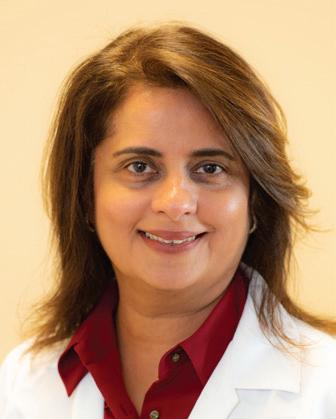
IMPEDIMENTS TO SLEEP
Many things can interfere with sleep, including illness, sleep disorders, environmental stimuli including outside noise and emotional or mental issues such as anxiety and depression. “The poorer the quality of sleep, the higher the tendency to be stressed, anxious and depressed,” says Dr. Matta. Consistent bedtime habits are also important to sleep, making it even more challenging for people who work rotating shifts to get enough quality shut-eye.
EFFECTS OF INADEQUATE SLEEP
According to Dr. Matta, consequences of inadequate sleep include an inability to focus, a tendency to forget important things, a shortened attention span and a delayed response time. In addition to making you feel awful, all of these can lead you to make mistakes or have accidents—which can range from embarrassing, if you nod off during a Zoom call, to deadly, if you fall asleep while operating a piece of heavy machinery.
To learn more or to schedule an appointment with the Center for Sleep Disorders, visit www.rwjbh.org/hudsoncounty
HOW TO STAY AWAKE AND ALERT ON THE LATE SHIFT

Dr. Matta recommends taking a nap before you leave for work at night. Have a caffeinated drink before starting your shift, make sure your workspace is welllit and take adequate breaks. “I will sometimes prescribe a wake-promoting medication when necessary,” says Dr. Matta.
ESSENTIALS FOR GOOD SLEEP
According to Dr. Matta, a good sleep environment is essential to quality sleep. To optimize your sleep, your bedroom or other sleep space should be:
Cool. Turn the heat down before you go to bed, use an air conditioner when it’s warm and keep your space uncluttered and well-ventilated. Consider “cooling” pillows and breathable (cotton) bedding.
Dark. “Light is a potent stimulant,” says Dr. Matta. “If you have to sleep during the day, black-out drapes or shades and a sleep mask can help tremendously.”
Quiet. Turn off electronics and block outdoor noise as much as possible. If a dead-quiet room drives you crazy, a steady white noise machine or a fan might help lull you to sleep.
A final piece of advice: “Remember that sleep is sacred,” says Dr. Matta. “Make it a priority.”
Healthy Together | 8 | Winter 2023
WELL
THE THE NIGHT SHIFT HOW TO GET QUALITY SLEEP WHEN YOU WORK IRREGULAR HOURS
JYOTI MATTA, MD
SLEEPING
ON
SUICIDE WARNING SIGNS
Contact the RWJBarnabas Health Behavioral Health Access Center at 800.300.0628 for information about services or a referral to a mental health specialist.
HELP AND HOPE FOR THOSE AT RISK FOR SUICIDE
Suicide. It’s a scary word. According to the Centers for Disease Control and Prevention (CDC), close to 48,000 people in the U.S. died by suicide in 2020—that’s one person approximately every 11 minutes. You may have a family member or friend who is contemplating, or who has attempted, suicide—and chances are you don’t even realize it. There are several reasons for that.
• The warning signs are not always clear—and not every person exhibits them.
• The associated stigma is so widespread that many people in crisis are afraid or ashamed to reach out for help.
• There’s often a very brief period between thought and action. Studies have shown that nearly half of those who’ve attempted suicide did so within 10 minutes of first thinking about attempting.
Nobody knows this better than
Mark A. Graham, a retired U.S. Army Major General who serves as Executive Director, Rutgers University Behavioral Health Care (UBHC) and RWJBH Behavioral Health and Addictions Services, National Call Center and Vets4Warriors, which includes the New Jersey Suicide Prevention Hopeline (NJ Hopeline). One of his sons died by suicide in 2003 and since then, Maj. Gen. Graham and his wife, Carol, have been tireless champions of efforts to promote suicide-prevention awareness.
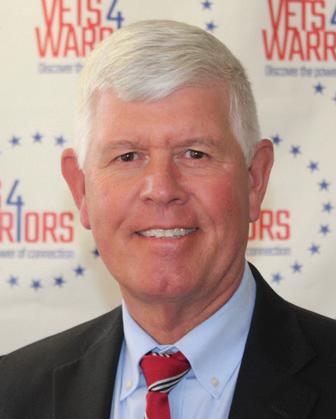
One in five adults in the U.S. (nearly 53 million people) lives with a mental illness. Yet, it still is not widely acknowledged as “real” sickness. “We’ve made some progress in changing that perception,” says Maj. Gen. Graham, “but we’re going to have the stigma until we make mental healthcare part of healthcare. Mental health is health.”
One of the goals of the NJ Hopeline, which launched a decade ago, is to make it easier for people contemplating suicide to seek help without fear of judgment. All NJ Hopeline employees have extensive training and are well

According to the National Institute of Mental Health, signs that a person may be thinking about suicide include:
Talking about:
• Wanting to die
• Great guilt or shame
• Being a burden to others
Feeling:
• Empty, hopeless, trapped or having no reason to live
• Extremely sad, anxious, agitated or full of rage
• Unbearable emotional or physical pain
Changing behavior:
• Making a plan or researching ways to die
• Withdrawing from friends, saying goodbye, giving away important items or making a will
• Taking dangerous risks such as driving extremely fast
• Displaying extreme mood swings
• Eating or sleeping more or less
• Using drugs or alcohol more often
prepared to help callers. “During a crisis, quick access to support and care can prevent death by suicide,” says NJ Hopeline Program Director William Zimmerman. “We listen, support and assess people for needs. There’s no time limit for a call, and we’re available 24/7. If we can keep that person engaged and supported, the suicidal action may never happen,” he says. Maj. Gen. Graham agrees. “The last thing we want to do is make a person regret that they called,” he says. “We want people to feel better, to know that there’s hope and help and that they’re not alone.”
If you or someone you know is experiencing warning signs of suicide, get help
Call 988 or NJ Hopeline at 855.654.6735 . For more information, visit
.
immediately.
rwjbh.org/behavioralhealth
A
ARMY MAJOR
AND HIS STAFF HELP PREVENT SUICIDE—ONE CALL AT A TIME.
RETIRED U.S.
GENERAL
MAJ. GEN. (RETIRED) MARK A. GRAHAM
RWJBarnabas Health | RWJBH.ORG 9
THE GREAT DEBATE:
CARDIO VS. STRENGTH TRAINING
Everyone knows that exercise is good for the heart. But what kind of exercise is most beneficial for optimum heart health—cardio or strength training? Anthony Altobelli III, MD, Clinical Chief of Cardiology, Robert Wood Johnson University Hospital (RWJUH) and RWJBarnabas Health (RWJBH) Medical Group, sheds some light on this decades-old debate.
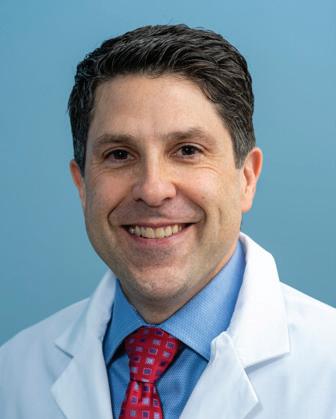
When it comes to cardio vs. strength training for heart health, is one more beneficial than the other?
The scientific evidence is still building around which form of exercise is best to prevent chronic disease. Historically, aerobic (or cardio) exercise was always recommended for heart and lung health with little attention paid to strength (or resistance) training. What’s clear now, however, is that strength training is as important to heart health as aerobic exercise and that a combination of both yields the best heart outcomes with regard to blood pressure, body composition,
fitness, strength and metabolism. In turn, beneficial change in a person’s physiology yields a lower risk of diabetes, hyperlipidemia (high cholesterol), heart attack and stroke.
What’s the best way to combine these exercises?
Physical Activity Guidelines for Americans , a 2018 report from the Department of Health and Human Services, recommends that each week, adults aged 18 to 64 do at least 150 to 300 minutes of moderate-intensity aerobic activity, 75 to 150 minutes of vigorous-intensity aerobic activity or an equivalent combination of both. Strength training should be performed at least twice a week on nonconsecutive days to allow a period of rest for the muscle groups being stressed.
How does age affect the type of exercise(s) a person should do?
As we age, safety becomes an issue. The aging adult should do both forms of exercise, but participation should take into account chronic medical conditions,
such as musculoskeletal disorders, that may place the individual at risk for injury. For people at risk for falls or with balance issues, resistance exercises, such as chair squats, heel lifts, rowing, resistance bands, bicep curls and shoulder presses, may be effectively and safely performed. Research continues to support strength/resistance training for older individuals.
What advice do you have for the average person who wants to start an exercise regimen to improve their heart health?
Recommendations are based on age and whether the individual is new to an exercise program. First, choose exercise that you may find enjoyable.
Second, set realistic expectations for how often and how long you’ll exercise. Third, choose exercises that you can safely perform.
Fourth, consider partnering with others for motivation and socialization. Fifth, communicate with your physicians.
ANTHONY ALTOBELLI III, MD
Whoever your heart beats for, our hearts beat for you. To connect with a top cardiovascular specialist at RWJBarnabas Health, call 888.724.7123 or visit www.rwjbh.org/heart. FIND OUT WHICH ONE IS BEST FOR YOUR HEART
HEALTH.
Healthy Together | 10 | Winter 2023
WORLD-CLASS CARE FOR BLOOD CANCERS CLOSE TO HOME
The Hematologic Malignancies Program at Rutgers Cancer Institute of New Jersey and RWJBarnabas Health is known in New Jersey and beyond for its world-class multidisciplinary team of cancer experts and for its coveted place at the forefront of cancer research. As the state’s only National Cancer Institute-Designated Comprehensive Cancer Center, it offers patients access to the most advanced treatment options for blood cancers, including blood and marrow transplantation, CAR T-cell therapy, immunotherapies and innovative clinical trials, many not available elsewhere.
Now, the highly regarded program
has extended its reach—and its potential—with the addition of two nationally recognized leaders in the field of hematologic malignancies to lead and complement the already outstanding team in place.

As the new Chief of Blood Disorders, Matthew Matasar, MD, MS, brings extensive expertise to the program and is among the nation’s most experienced clinicians and researchers in routine, rare and complex hematologic malignancies, with extensive expertise in treating these types of cancers with clinical trials, immunotherapy and other cellular therapies. Dr. Matasar will lead the enhancement of multidisciplinary clinical services, including programmatic growth of the bone marrow transplant and cellular therapy programs across the health system.
“My goal is to grow what already is an amazing program with extraordinary physicians,” says Dr. Matasar. “My vision is to continue to develop the health system’s ability to give best-in-class care; to deliver the most promising novel
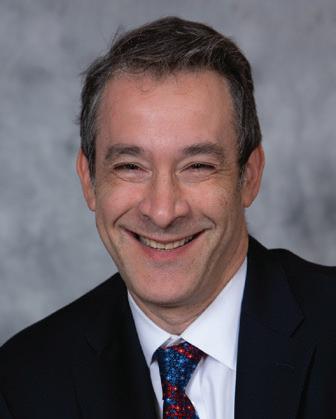
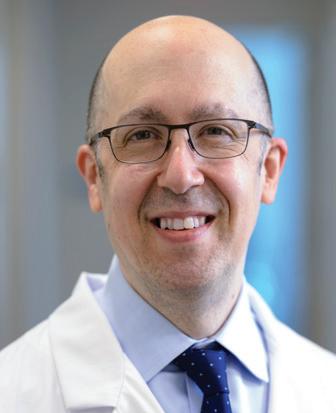
therapies in the context of ongoing and new clinical trials; to educate our patients, their families and the community; and to train physicians how best to take care of these patients.”
Ira Braunschweig, MD, Chief of Transplant and Cell Therapy, is an expert at treating blood cancers with blood and marrow transplantation as well as with CAR T-cell therapy, in which, he says, “We take the cells of a patient’s own immune system and reengineer them to become super-powerful cancerfighting cells.” Dr. Braunschweig was one of the physician-scientists leading the pivotal study in late 2015 that established CAR T-cell therapy as a standard for relapsed and refractory aggressive lymphoma.
“The Rutgers Cancer Institute/ RWJBarnabas Health program has a strong foundation,” he says. “I want to take it to the next level by expanding it and ensuring that more patients have these therapies available to them close to home, and by further enhancing the availability of cutting-edge therapies.”
To learn more about the Hematologic Malignancies Program at
Rutgers Cancer Institute of New Jersey/RWJBarnabas Health,
please visit www.rwjbh.org/beatcancer
MATTHEW MATASAR, MD, MS
CANCER DOCTORS ARE HELPING TO ENHANCE AND EXPAND THE HEMATOLOGIC MALIGNANCIES PROGRAM AT RUTGERS CANCER INSTITUTE
NEW JERSEY
HEALTH.
RENOWNED
OF
AND RWJBARNABAS
RWJBarnabas Health RWJBH.ORG | 11
IRA BRAUNSCHWEIG, MD
BETTER WOMEN’S HEALTH AT EVERY AGE
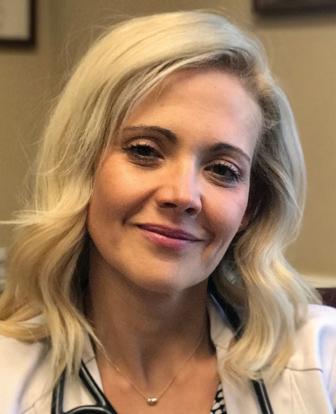

Throughout a woman’s life, her body and her healthcare needs evolve. From adolescence through menopause and beyond, women experience many changes. Staying healthy through all those changes can be daunting—but it doesn’t have to be. We asked doctors at RWJBarnabas Health to share some of their best advice on how women can maintain optimal

WHAT WOMEN NEED TO KNOW TO STAY WELL— FROM ADOLESCENCE TO AGELESS.
health at every age and stage.
PREVENTIVE AND GENERAL HEALTHCARE
Being proactive about preventing illness and injury should start early in a woman’s life. “Adolescent women should be encouraged to establish healthy eating and sleeping habits, exercise regularly and avoid excessive screen time,” says
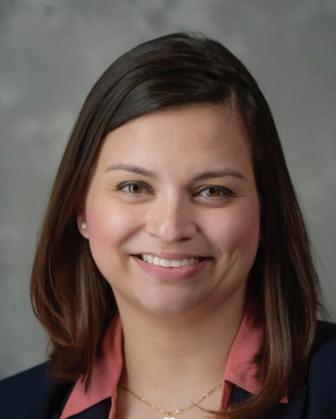
Robert A. Graebe, MD, Chair and Program Director of the Department of Obstetrics and Gynecology at Monmouth Medical Center. Preventive care, he says, can include taking seemingly simple but important measures such as consistently using sunblock and always wearing a seat belt.
Dr. Graebe also stresses the importance of caring for mental health and says that adolescent and young women should be encouraged to seek support for feelings of anxiety and depression or other mental health problems. In addition, women should schedule an annual well-woman visit. “During this visit, the care you receive will focus on you, your body and your reproductive health,” says Dr. Graebe. “A well-woman visit also provides a time
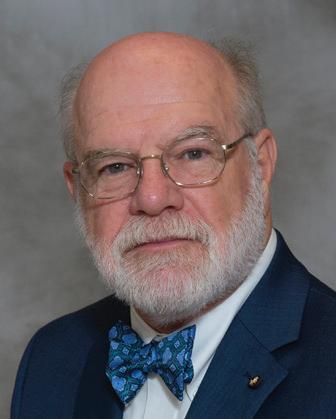 ROBERT A. GRAEBE, MD
LENA L. MERJANIAN, MD
NICOLE M. MONTERO LOPEZ, MD
ROBERT A. GRAEBE, MD
LENA L. MERJANIAN, MD
NICOLE M. MONTERO LOPEZ, MD
Healthy Together | 12 | Winter 2023
JULIE MASTER, DO, FACC
to discuss fertility questions and family planning options and to get screened for sexually transmitted diseases.”
GYNECOLOGIC AND REPRODUCTIVE HEALTH
• First OB/GYN Visits
“The American College of Obstetricians and Gynecologists recommends that a girl establish care with a gynecologist between the ages of 13 and 15,” says Lena L. Merjanian, MD, an obstetrician and gynecologist at Rutgers Health. “This visit is an opportunity for her to establish a trusting rapport with her physician. It’s a confidential visit to discuss reproductive health concerns, contraception, relationships, adolescent sexuality and avoiding risky behaviors.”
According to Dr. Graebe, the first OB/ GYN visit is also an opportunity to establish the diagnosis of common problems such as polycystic ovarian syndrome, hypothyroidism, eating disorders, etc. “The majority of bone formation occurs during the early years, so discussion concerning proper bone health is vital to prevent future osteoporosis,” says Dr. Graebe. A first gynecologic visit usually doesn’t include a pelvic exam or Pap smear.
• Reproductive Years
During a woman’s reproductive years, maintaining optimal health can increase her chances of a healthy pregnancy and birth if she chooses to start or grow a family. Folic acid supplementation is important, especially when planning a pregnancy. In addition, women should be proactive with age-appropriate screenings, such as Pap and HPV (human papillomavirus) tests. They should use condoms with new sexual partners to prevent sexually transmitted diseases, such as chlamydia and gonorrhea, which can negatively impact fertility. And, says Dr. Graebe, they should be aware that “a woman’s peak fertile years are from about age 27 to 29, with a steady decline starting in the mid-30s.”
Some women, including those receiving cancer therapies and those wishing to postpone pregnancy until beyond their mid-30s, may want to consider egg freezing and subsequent
HEALTH EQUITY
The importance of women’s health equity cannot be understated. According to Meika Neblett, MD, MS, Chief Medical Officer at Community Medical Center, “Women’s health equity requires an integrated approach that recognizes the need for progress in understanding the social determinants of health, diversity and inclusion, and their intersectionality.
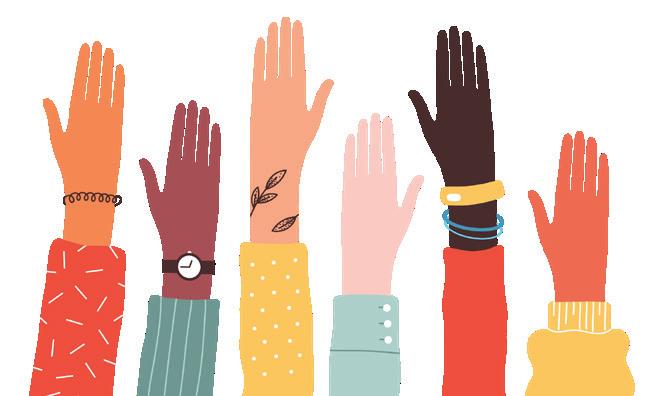

MEIKA NEBLETT, MD, MS
“RWJBarnabas Health has made equity a priority in women’s health,” says Dr. Neblett, “and it has taken steps toward removing barriers to preventive screenings that lead to earlier diagnosis and treatment of certain types of cancers as well as improving access to family planning services.”
in-vitro fertilization, says Dr. Graebe.
• Breast Health
Breast self-awareness should start at about age 20, when women should focus on knowing what’s normal for their breasts. If changes are noticed, women should talk to their primary care provider or OB/GYN. Regular breast screening can help detect cancer at an early and more treatable stage. For women at average risk for breast cancer, a clinical breast exam is recommended every one to three years between the ages of 25 and 39, and a mammogram is recommended every one to two years beginning at age 40. “It’s important for women to be aware of their family history,” says Dr. Graebe. “Women at increased risk, such as those with a family history of breast cancer and other hereditary cancer syndromes, may benefit from seeing a genetic counselor.”
HEART HEALTH
“It’s important for a woman to know her risk factors for heart disease, including her cholesterol numbers, blood pressure, family history and smoking status,” says Julie Master, DO, FACC, Director of Noninvasive Cardiac Services at Monmouth Medical Center. “There are also novel risk factors such as pregnancy complications that can put a woman at
higher risk of heart disease in the future. A history of cancer treatment may also increase her risk. Having a yearly physical and not ignoring symptoms are of the utmost importance.”
BONE HEALTH
Most women don’t think about their bones until there’s a problem with them, but bones need care to stay healthy just like the rest of the body.
Bone density testing is one way to measure bone health. This is especially important for women because, according to Nicole M. Montero Lopez, MD, an orthopedist at Clara Maass Medical Center, hormonal changes during menopause can directly affect bone density. Women 65 and older and women under 65 with risk factors, such as a family history of the disease or fracture, should have a bone density test. Frequency of testing depends on age, results of prior tests and individual risk of fracture. The goal in osteoporosis prevention is to slow down the loss of bone mass to reduce the risk of fractures. You can strengthen your bones with certain exercises and lifestyle changes. Weight-bearing exercise is the most important type of exercise for preventing osteoporosis, and a diet rich in calcium and vitamin D is good for bone health.
To learn more about women’s health services at RWJBarnabas Health, visit www.rwjbh.org/treatment-care/womens-health
RWJBarnabas Health RWJBH.ORG | 13
CHILDREN’S CARE CLOSE TO HOME
WHERE TO TURN FOR SPECIALIZED OUTPATIENT SERVICES THROUGHOUT NEW JERSEY
As a leading provider of inpatient and outpatient care for children who face special health challenges from birth to age 21, Children’s Specialized Hospital, part of the RWJBarnabas Health Children’s Health Network of hospitals, partners with families to treat a wide range of developmental, physical, mental and behavioral concerns. You’ll find outpatient services close to home at these New Jersey locations.
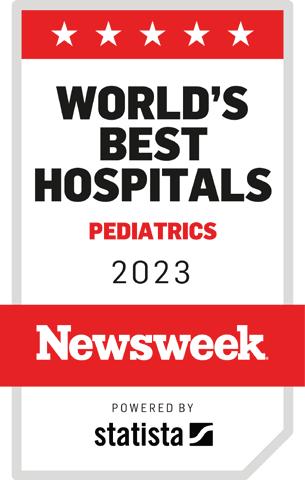
HAMILTON
• Audiology
• Developmental and behavioral pediatrics
• Neurology
• Occupational therapy
• Physiatry
• Physical therapy
• Psychiatry
• Psychology
• Special needs primary care
BAYONNE
• Developmental and behavioral pediatrics
• Occupational therapy
• Physical therapy
• Speech and language therapy
CLIFTON
• Developmental and behavioral pediatrics
• Neurology
• Occupational therapy
• Orthopedics
• Physical therapy
• Psychology
• Speech and language therapy
EAST BRUNSWICK
• Occupational therapy specializing in upper extremity and hand therapy
• Physical therapy specializing in orthopedic and sports medicine
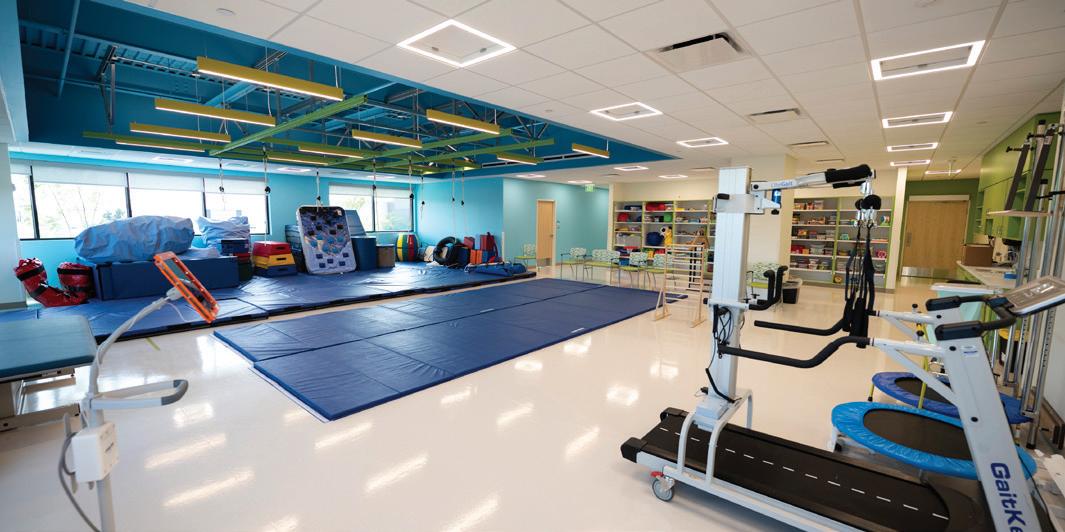
EATONTOWN
• Audiology
• Developmental and behavioral pediatrics
• Neurology
• Occupational therapy
• Physiatry
• Physical therapy
• Psychology
• Speech and language therapy
EGG HARBOR TOWNSHIP
• Developmental and behavioral pediatrics
• Occupational therapy
• Physiatry
• Physical therapy
• Psychiatry
• Psychology
• Speech and language therapy
• Speech and language therapy
NEWARK
• Developmental and behavioral pediatrics
• Occupational therapy
• Physical therapy
• Speech and language therapy
NEW BRUNSWICK— PLUM STREET
• Developmental and behavioral pediatrics
• Neurology
• Neuropsychology
• Occupational therapy
• Physiatry
• Physical therapy
• Psychiatry
• Psychology
• Speech and language therapy
TOMS RIVER— LAKEHURST ROAD AND STEVENS ROAD
• Audiology
• Developmental and behavioral pediatrics
• Neurology
• Nutrition
• Occupational therapy
• Physiatry
• Physical therapy
• Psychiatry
• Psychology
• Rehabilitation technology
• Speech and language therapy
UNION
• Audiology
• Developmental and behavioral pediatrics
• Neurology • Neurorehabilitation
• Occupational therapy
• Orthopedics
• Physiatry
• Physical therapy • Psychiatry • Psychology
• Special needs primary care • Speech and language therapy
SOMERSET
• CSH RUCARES Severe Behavioral Program
• Intensive Feeding Disorders Program
WEST ORANGE
• Occupational therapy
• Physical therapy
• Speech and language therapy
To learn more about outpatient programs and services or to schedule an appointment, call 888.244.5373 or visit www.rwjbh.org/cshoutpatient At Children’s Specialized Hospital, we provide world-class care for children and young adults who face special health challenges across the state of New Jersey and beyond. We treat everything from chronic illnesses and complex physical disabilities, like brain and spinal cord injuries, to a full scope of developmental, behavioral and mental health concerns. We have convenient locations throughout the state: Bayonne, Clifton, East Brunswick, Eatontown, Egg Harbor Township, Hamilton, Newark, New Brunswick, Somerset, Toms River, Union and West Orange.
Outpatient services include facilities and equipment specially designed to meet children’s needs. Healthy Together | 14 | Winter 2023
An RWJBarnabas Health facility
BEYOND BED-WETTING
A TOP PEDIATRIC UROLOGIST SHARES THE LATEST TREATMENTS FOR URINARY TRACT PROBLEMS IN CHILDREN.
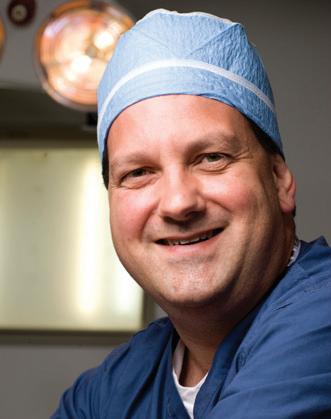
Joseph Barone, MD, a nationally recognized expert in the field of pediatric urology, was recently appointed Medical Director of Pediatric Urology for the Children’s Health Network of RWJBarnabas Health (RWJBH). Dr. Barone is also Chief of the Division of Urology and Professor of Surgery at Rutgers Robert Wood Johnson Medical School. Here, Dr. Barone talks about children’s urologic conditions as well as what’s new in the field.
How has the RWJBH pediatric urology program changed recently?
We’re now a system-based program with all pediatric urologists in all RWJBH children’s hospitals working as one group. This allows us to take advantage of
synergistic opportunities for clinical access, safety, quality and diversity. With integration, patients will receive the same pediatric urology care no matter where they are in the system.
How are children’s urologic issues different from those of adults?
Children mostly have congenital problems and adults deal with problems that develop during life. Because of this, the practice of pediatric urology now has its own board certification by the American Urological Association.

What are some common urologic issues in children?
The most common is bed-wetting, affecting 10 million children in the United States each year. Other
common conditions include urinary tract infections (UTIs) and daytime accidents. There are also some common surgical conditions, such as undescended testes and hernia.
What are some serious pediatric urologic conditions that you treat? Some children born with neurological diseases, such as spina bifida, lack the nerves that control the bladder. As a result, they’re incontinent. To restore continence, we use the small intestine to make a new bladder with a procedure called bladder augmentation. Twisting, or torsion, of the testes—when a boy’s testicle twists spontaneously and cuts off its blood supply—is another serious issue that not many people know about. Sudden, severe testis pain is an emergency and parents should take their child to the emergency department if this happens.
What robotic surgical techniques are used for children?
We offer minimally invasive robotic surgery for nearly all pediatric urology conditions that historically would require an incision. The robot is controlled by the surgeon, and three or four laparoscopic ports are placed into the child’s abdomen. Robotic surgery speeds recovery and results in less pain. For older children, we offer singleport robotics. There are only a handful of centers that offer this robotic procedure.
Are there any exciting new developments in this area?
We’re working on developing a new electrical surgical tool designed for pediatric surgery. We currently use similar tools designed for adults and when working in a very tiny space, they can be cumbersome. We’ve designed the pediatric surgical tool and are in the process of making a 3D model.
To find a pediatric urologist or for more information on children’s urologic issues, visit www.rwjbh.org/childrenshealth
JOSEPH BARONE, MD
RWJBarnabas Health RWJBH.ORG | 15
BANKING ON LIFE
WHERE AND HOW TO DONATE BLOOD THIS WINTER
It’s estimated that someone in the United States needs blood every two seconds, and, since January is National Blood Donor Month, there couldn’t be a better time to donate. Blood doesn’t have a long shelf life—between five and 35 days, depending on the component—so there’s rarely, if ever, a surplus. This is especially true in winter, when donations typically slow down because of bad weather, winter holidays and seasonal illnesses like colds and flu.
“Simply put, there’s no substitute for blood,” says Sally Wells, Business Development Liaison, Robert Wood Johnson University Hospital Blood Services. “Blood cannot be manufactured. We always say that ‘it’s the blood on the shelf’ that makes it possible to treat traumatic injuries, perform surgeries, support premature babies and treat patients who are going through advanced cancer therapies, to name a few of its uses.”
While all RWJBarnabas Health facilities run blood drives several times
a year, Wells says that multiple blood drives will occur in January, noting that donor centers in New Brunswick and Somerset will be open daily. “Our message for National Blood Donor Month is ‘Donate 3 in 2023,’” she says, referring to three pints of blood.
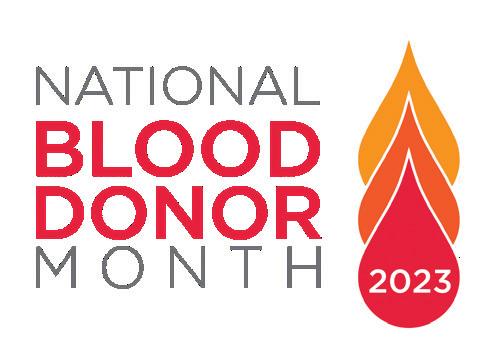
The ripple effect of the pandemic is still being felt in many areas, including blood donation. “People aren’t donating as often as before the pandemic, so we’re still experiencing periodic shortages,” says Wells. “We haven’t been able to build up a reserve, so certain blood types and products are always in high demand.”
The blood type that is most in demand is type O-negative (O-). “This is the universal blood type because it can be used in an emergency to transfuse anyone until the person’s blood type can be verified,” says Wells.

If you don’t know your type, don’t worry. When you donate, you’ll be issued a blood-donor card that will list your blood type.
HOW TO DONATE
The four basic steps to donating blood are:
1. Registration (to gather demographic information)
2. Medical interview and mini physical (to determine if the donor is suitable)
3. Phlebotomy (the actual donation, drawing blood)
4. Rest and refreshments (after blood is donated)
REQUIREMENTS FOR DONORS
To donate blood, you must:
• Be in overall good health
• Be at least 17 years old (16 with parental consent)
• Weigh at least 110 pounds (120 pounds if 16 years old)
• Present a valid photo identification with signature
For more information or to schedule an appointment to donate blood, visit www.rwjbh.org/treatment-care/blood-donation or
or call 732.235.8100 ext. 221 (New Brunswick) or 908.685.2926 (Somerset).
www.rwjuhdonorclub.org ,
Healthy Together | 16 | Winter 2023
Create a healthy tomorrow by leaving a lasting legacy today.






Help ensure that the next generation has easy access to extraordinary health care by including Jersey City Medical Center in your estate plans. You can create your legacy today by including the medical center as a partial beneficiary of your will or retirement account. It’s simple. It’s impactful. It’s lasting. For more information, please contact Nicole Kagan at 201-395-7571 or Nicole.Kagan@rwjbh.org Information is also available online by visiting rwjbh.org/jcmcplanned

A WORLD-CLASS EMERGENCY DEPARTMENT IN BAYONNE

Healthy Together | 18 | Winter 2023
Nobody wants to need emergency medical care, but for residents of Bayonne and the surrounding area, having access to an emergency department (ED) right in their neighborhood—at the corner of Broadway and East 25th Street in Bayonne—offers not only convenience, but peace of mind in case of an accident, injury or other emergency.
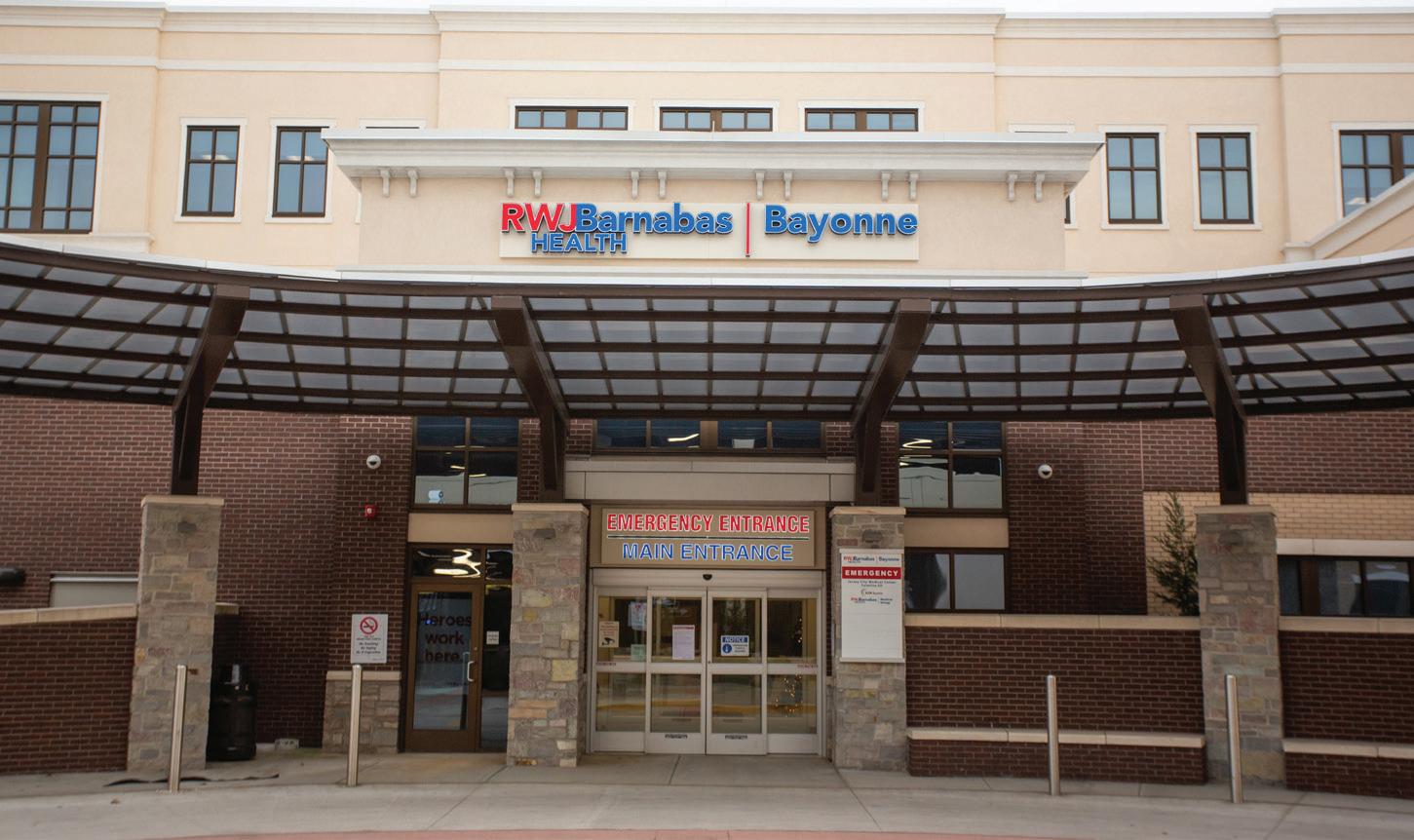
A satellite of the ED at Jersey City Medical Center (JCMC), the Bayonne location offers patients the same highquality emergency services patients receive at the hospital’s main location.
Here, Schubert Perotte, MD, Chair of Emergency Medicine at JCMC, and Susan O’Brien, DO, Medical Director of the Bayonne Satellite ED, share some information on the ED at RWJBarnabas Health at Bayonne.
Dr. O’Brien: The services are equivalent, and we even have the same staff at both EDs. The main difference is that if an emergency department patient needs to be admitted to the hospital, we will make all the arrangements and will have them transported by ambulance to the Medical Center. We’re able to consult with surgeons, cardiologists, neurologists, orthopedists, OB/GYNs, and all the other specialists at JCMC.
Dr. Perotte: We’re staffed with boardcertified emergency physicians, specially trained nurses, technicians and healthcare professionals, all of whom, as Dr. O’Brien noted, work at both locations. At the Bayonne ED, we handle all acute medical emergencies, exactly as we do at JCMC. The Bayonne facility is a fully licensed emergency department with all the same
capabilities as a traditional ED and it provides emergency care for patients needing immediate and specialized medical attention for most illnesses or conditions.
What specific services are available in Bayonne?
Dr. O’Brien: We offer a full range of emergency services, including radiology services—X-ray, ultrasound, MRI, CAT scans. We also have an onsite lab. People are often surprised at how quickly the diagnostic tests are done.
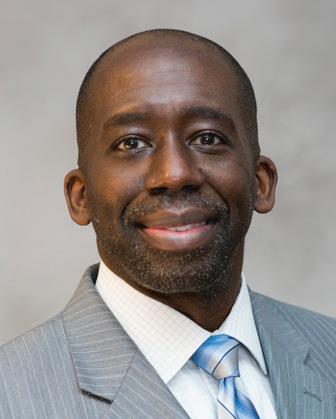
How has the community responded to the satellite ED?
Dr. Perotte: I think the community is very happy to have the ED there. It’s new and attractively designed and the service is not only excellent, it is very quick. We receive great feedback from patients who tell us that the emergency department is well kept, that the service is high-quality and that the staff interacts well with their personal physicians.

How do the two EDs compare in terms of patients served?
Dr. O’Brien: We’re averaging about 60 patients per day at Bayonne and more than 200 in Jersey City. That’s partly due to the size of the surrounding population
and also to the fact that, at Bayonne, we don’t typically have patients coming into the facility by ambulance—most ambulances will go to a larger ED. So the majority of our patients at Bayonne are walk-ins.
What else do you think is important for people to know about the satellite ED?
Dr. O’Brien: I think some people believe it’s just an urgent-care center, but we’re actually a full emergency department, so we can provide many more services than people expect.
Dr. Perotte: As part of JCMC, the satellite emergency center is there to provide patients with the best, highestquality care in Hudson County. We’re here for the community, and the ED is just the start. We now have multiple offices upstairs in the same building, where we can provide other services that patients may need, including surgical services, cardiac services women’s health and primary care services. If patients don’t have a primary care physician or if they need specialty care and they don’t have an established relationship with a specialist, those are both options that we can provide for them, because the satellite ED is grounded in the local community.
To learn about emergency services provided by Jersey City Medical Center, visit www.rwjbh.org/jerseycity
SUSAN O’BRIEN, DO
Jersey City Medical Center’s satellite emergency department in Bayonne offers the same high-quality care rendered by the same board-certified physicians as the ED at the hospital’s main location. In addition to being centrally located and easily accessible, the Bayonne satellite ED offers radiology services, an on-site lab and clean, bright, fully equipped exam rooms.
How does the quality of care at Bayonne’s ED compare to that at JCMC?
Jersey City Medical Center | RWJBH.ORG/JERSEYCITY 19
SCHUBERT PEROTTE, MD
HELPING TO TRANSFORM TRAUMA INTO PURPOSE
well qualified for her job. But her qualifications were not earned in a college classroom or a corporate training program. Overton’s experience comes from her own life, a life that has been far from easy.
Life Lessons
“My personal experiences have inspired me to want to help change the narrative for Jersey City,” says Overton. “One of those experiences was being incarcerated in 2010. I was released in 2012 and have not returned since. I’ve lost friends to gun violence and to the jail system. I’ve been shot four different times in my life. I lost both of my parents within 10 months. I’ve experienced depression, and with proper help and support I was able to overcome it.”
Overton believes the pain and loss she’s endured have given her both a desire and a platform to give back to her community.

A Day in the Life of a Trauma Patient Navigator
When you look at Lashawn Overton, the first thing you’ll notice is a big, bright smile that exudes warmth and compassion. When she speaks, you’ll feel that same warmth and compassion, coupled with an intense passion and deep insight that seems to belie her youth. These qualities serve Overton well in her role as Trauma Patient Navigator for Jersey City Medical Center’s Project Hudson.
The Mission of Project Hudson at Jersey City Medical Center (JCMC) Project Hudson—the “Hudson” stands for “Helping Us Deliver Strength in
Our Neighborhoods”—was formed in 2018 by JCMC surgeon and Chief of Trauma Bruno Molino, MD, and Trauma Program Director Marissa Fisher, RN. According to Overton, the mission of Project Hudson, which is federally funded by VOCA (Victims of Crime Act) grants, “is to reduce the risk for those who’ve been injured by violence from being injured again, to provide support, to promote a healthier perspective and outlook on life and to give victims of interpersonal violence tools and strategies for success once they leave the hospital.”
Overton, who celebrated one year at JCMC in October, is clearly
To learn more about Project Hudson and JCMC’s Violence Intervention Program, call 201.213.4149
Part of Overton’s job is to serve as a role model and community liaison to people in the Jersey City community who have been or are in danger of being affected by violence. She connects Project Hudson clients to community resources, visits injured victims of violence at their bedside and helps them cope with the violence they’ve experienced. She not only addresses socioeconomic needs but promotes healthy choices. Overton also supports, advocates and provides intensive case management services for patients for up to six months after they’re discharged from the hospital.
Overton says that being able to work as a Trauma Patient Navigator is a blessing to her. “My goal, in the long term, is to expand my efforts to focus on violence prevention,” she says. “I love the work I do here. I’m so happy and grateful to JCMC for giving me this opportunity.”
Lashawn Overton, left, credits her work in violence intervention as saving her life and providing an opportunity to transform trauma into purpose.
Healthy Together | 20 | Winter 2023
MEET JERSEY CITY MEDICAL CENTER’S TRAUMA PATIENT NAVIGATOR, LASHAWN OVERTON.
JCMC’S ONCOLOGY NURSE NAVIGATORS
Receiving a cancer diagnosis is one of the most difficult things a person can experience. No matter how prepared you may be for such news, hearing the words “you have cancer” can be devastating. In addition to wreaking havoc on your emotions, a cancer diagnosis generally brings with it a long and often confusing list of new tasks— including decisions and appointments that must be made in a timely and efficient manner. For many people, cancer is uncharted territory, and it’s natural to feel lost.
That’s why oncology nurse navigators, like Stephanie Rivera, MSN, RN, CEN, and Cristine-Marie Lacap, BSN, RN, CN-BN, at Jersey City Medical Center (JCMC), are such integral members of a patient’s cancer care team. Together with oncology social workers, like JCMC’s Kristy Case, LCSW, OSW-C, these specially trained oncology nurses offer support, guidance, knowledge and compassion at every step of a patient’s cancer journey—from diagnosis through active treatment.
“Navigators typically contact patients shortly after diagnosis and help them as they progress through their treatments,” says Rivera, who worked as an emergency department RN for eight years before transitioning into nurse navigation. “We support patients and their families by connecting them to available resources and addressing any barriers to care.”

Barriers, according to Rivera, can include a patient’s limited English proficiency, limited healthcare literacy, financial constraints, need for emotional support or more practical things like transportation to appointments. “It is our job to help guide patients through a challenging time in a large healthcare system and find ways to lessen their burdens,” she says.
The number of patients JCMC oncology nurse navigators work with varies, as do their day-to-day duties. “I usually start the day reviewing calls, messages and emails from patients and staff,” says Rivera. “My messages can range from questions about appointments, medications or side effects of treatments to new referrals from providers.”
According to Lacap, a certified breast nurse navigator who is relatively new to oncology but has been a navigator for nine years, “Much of my time is spent connecting with patients prior to diagnostic exams, scheduled surgery, physician consults, chemotherapy and/or radiation therapy to provide additional support, reinforce information and
coordinate care.”
“Our navigators are tumor sitespecific,” Lacap says. “I work mainly with breast cancer and gynecologic cancer patients, while Stephanie Rivera is our multisite oncology nurse navigator.”
Rivera and Lacap often work together with Case, whose role as an oncology social worker focuses primarily on helping patients emotionally cope with cancer. If a patient is anxious about their diagnosis, for instance, Case will reach out to the patient to provide emotional support and tools to help manage their anxiety. “I also provide information on work, legal and financial concerns; ensuring basic daily needs are met at home; access to affordable medical care and referrals to resources such as transportation, home care and hospice,” she says.
Rivera, Lacap and Case all agree that helping ease the stress of and offering comfort and guidance to patients with cancer is extremely rewarding. “We’re all very fortunate to have such meaningful, connected relationships with our patients,” says Case.
To schedule an appointment with a specialist at JCMC, visit www.rwjbh.org/hudsoncounty
Jersey City Medical Center | RWJBH.ORG/JERSEYCITY 21
ONCOLOGY NURSE NAVIGATORS ARE AN IMPORTANT PART OF YOUR CANCER CARE TEAM.
RWJBarnabas Health and Jersey City Medical Center, together with Rutgers Cancer Institute of New Jersey—the state’s only NCI-Designated Comprehensive Cancer Center—provide close-to-home access to the latest treatment options. To learn more, call 844.CANCERNJ or visit www.rwjbh.org/beatcancer.
What excites you about your position as board chair at JCMC?
The hospital is the backbone of our community, and it’s been that way since the 1800s. Jersey City Medical Center was dedicated a year before the Statue of Liberty was dedicated. It’s exciting to be a small part of something that means so much to so many people.
What does a board chair do, and what does your role at JCMC entail?
I’m a volunteer, as all board members are. We’re the governance body for the hospital. We meet regularly, we set policy, and we work with the CEO and his team to ensure effective implementation.
You are the first person of Latinx heritage to serve as board chair of JCMC. What does that distinction mean to you?
I think it’s very important, it’s very personal and gives me a great deal of hope for the future. This role comes with a lot of pressure and a lot of wonderful responsibility, and I’m honored to serve my community in this way. It’s important that we incorporate a wide range of perspectives and voices.
How has healthcare changed, and what is JCMC’s place in healthcare specifically?
PAYING IT FORWA R D
Carlos Lejnieks has the kind of affable manner and generosity of spirit that immediately draws people in. It’s a quality that has served him well in his illustrious career, which includes coveted leadership positions, such as his “day job,” as he humbly calls it, as CEO of Big Brothers Big Sisters (BBBS) of Essex, Hudson & Union Counties.
That quality is also serving him well in his new role as Chairman of the Jersey City Medical Center (JCMC) Board of Trustees, where he is the first person of Latinx descent to hold the position.
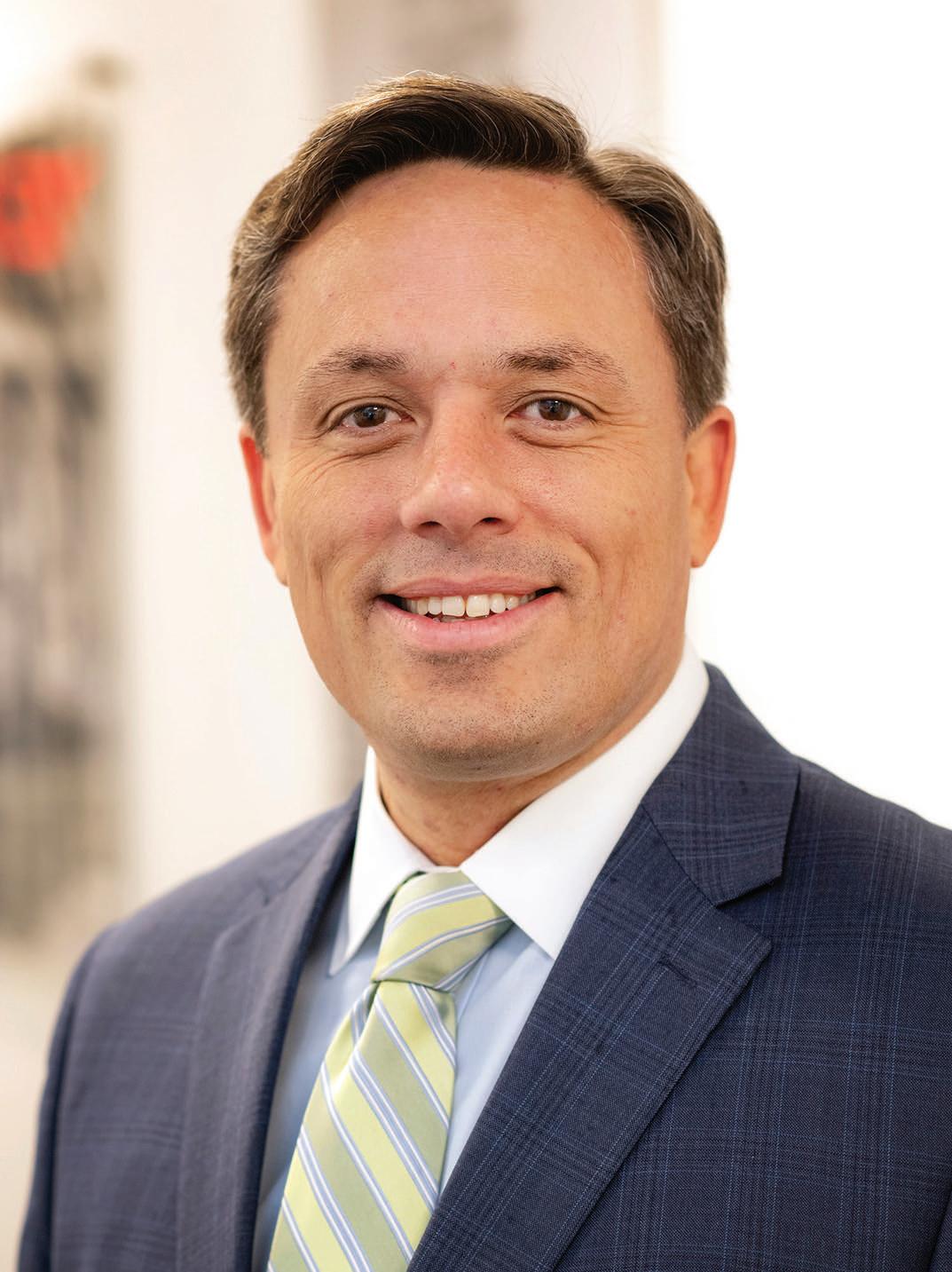
Lejnieks spoke recently about his new role and the future of JCMC.
There is increased perspective given to wellness, prevention and increased valuing of diverse voices. A century ago, the social determinants of health weren’t considered. That’s changing. We now know, for instance, that food insecurity leads to poor health outcomes. There is a direct connection between food insecurity and obesity, high blood pressure, heart disease and diabetes. JCMC is helping to address this with programs like the JCMC Food FARMacy, which provides patients with chronic illnesses access to food, including fresh produce, and by providing needed health screenings and health education for our community.
What is your vision for the future of JCMC?
We want to do right by the people who come through our doors and to understand and address the needs of our population and the health trends within our population.
What inspires your passion for helping your community and ‘paying it forward’?
Throughout my life I’ve been the beneficiary of so many blessings, including mentors who believed in me, but I grew up without health insurance, so I don’t take healthcare for granted. I’ve been blessed to get to where I am, so who am I to not pay it forward?
To learn more about world-class care and services provided by Jersey City Medical Center, visit www.rwjbh.org/jerseycity.
MEET CARLOS LEJNIEKS, CHAIRMAN OF JERSEY CITY MEDICAL CENTER’S BOARD OF TRUSTEES.
Healthy Together | 22 | Winter 2023
Carlos Lejnieks, paying it forward as Chairman of JCMC’s Board of Trustees
HEALTHY, DELICIOUS GAME-DAY EATS
GO BEYOND CHIPS AND DIP FOR YOUR SUPER BOWL PARTY.
If you search online for popular Super Bowl foods and snacks, you’ll see the usual suspects: chili, pizza, burgers and, usually topping the list, Buffalo wings. But what about that New Year’s resolution you made—the one about eating healthy foods? Here are two recipes that are not only delicious—but nutritious, too. “‘Healthy’ doesn’t have to mean ‘boring’ or ‘flavorless,’” says Kristin Carlino, MS, RDN, Registered Dietitian/Nutritionist at Jersey City Medical Center’s Green Apple Rx, Food FARMacy. “These recipes are wholesome and healthy without sacrificing flavor, crunch or kick. They’re also easy to make, and they present beautifully.”
ZUCCHINI SKINS
INGREDIENTS:
• ½ lb. turkey bacon
• 4 large zucchini
• 2 Tbsp. extra-virgin olive oil
• ½ tsp. chili powder
• ¼ tsp. ground cumin
• ¼ tsp. freshly ground black pepper
• 2 cups shredded cheddar (can be low-fat, if preferred)
• 1 cup plain Greek yogurt, for garnish
• 2 green onions, thinly sliced, for garnish
DIRECTIONS:
• Preheat oven to 400° F.
• Cook bacon until crispy, about 8-10 minutes.
• Cut zucchinis in half lengthwise and scoop out seeds.
• Coat zucchini with olive oil and place in baking dish.
• Season with chili powder, cumin and black pepper.
• Bake for 5 minutes or until slightly tender.
• Top zucchini with cheese and turkey bacon.

• Return zucchini to oven for 10 minutes until cheese bubbles and zucchini is tender.
• Garnish with plain Greek yogurt and green onions.
BUFFALO CAULIFLOWER BITES

INGREDIENTS:
• 2 cups cauliflower florets
• Extra-virgin olive oil to drizzle
• 2 tsp. garlic powder
• ⅛ tsp. fresh black pepper
• 3 Tbsp. all-purpose flour
• 1 Tbsp. butter (coconut oil for plant-based option)
• ½ cup hot sauce
DIRECTIONS:
• Preheat oven to 450° F.
• Place cauliflower florets in gallon-size plastic bag and drizzle olive oil to coat evenly.
• Add garlic powder, black pepper and allpurpose flour. Shake bag to coat.
• Place florets on baking sheet and place sheet on middle rack to bake for 10-15 minutes while checking tenderness.
• For the sauce: mix melted butter or coconut oil with hot sauce.
• Toss florets in sauce and add more as needed.
• Serve with Greek yogurt ranch dip.
To learn more about Jersey City Medical Center’s Food FARMacy, visit www.rwjbh.org/jerseycity
Jersey City Medical Center | RWJBH.ORG/JERSEYCITY 23
355 Grand St., Jersey City, NJ 07302
We’ve renovated everything in our Emergency Department. Including the way pediatric care is delivered.
Any way you look at it, it’s smarter medicine.
From our board-certified emergency staff to our trauma-trained nurses, we’re healing, enhancing and investing in Hudson County.
We provide the best possible care onsite for our young patients:
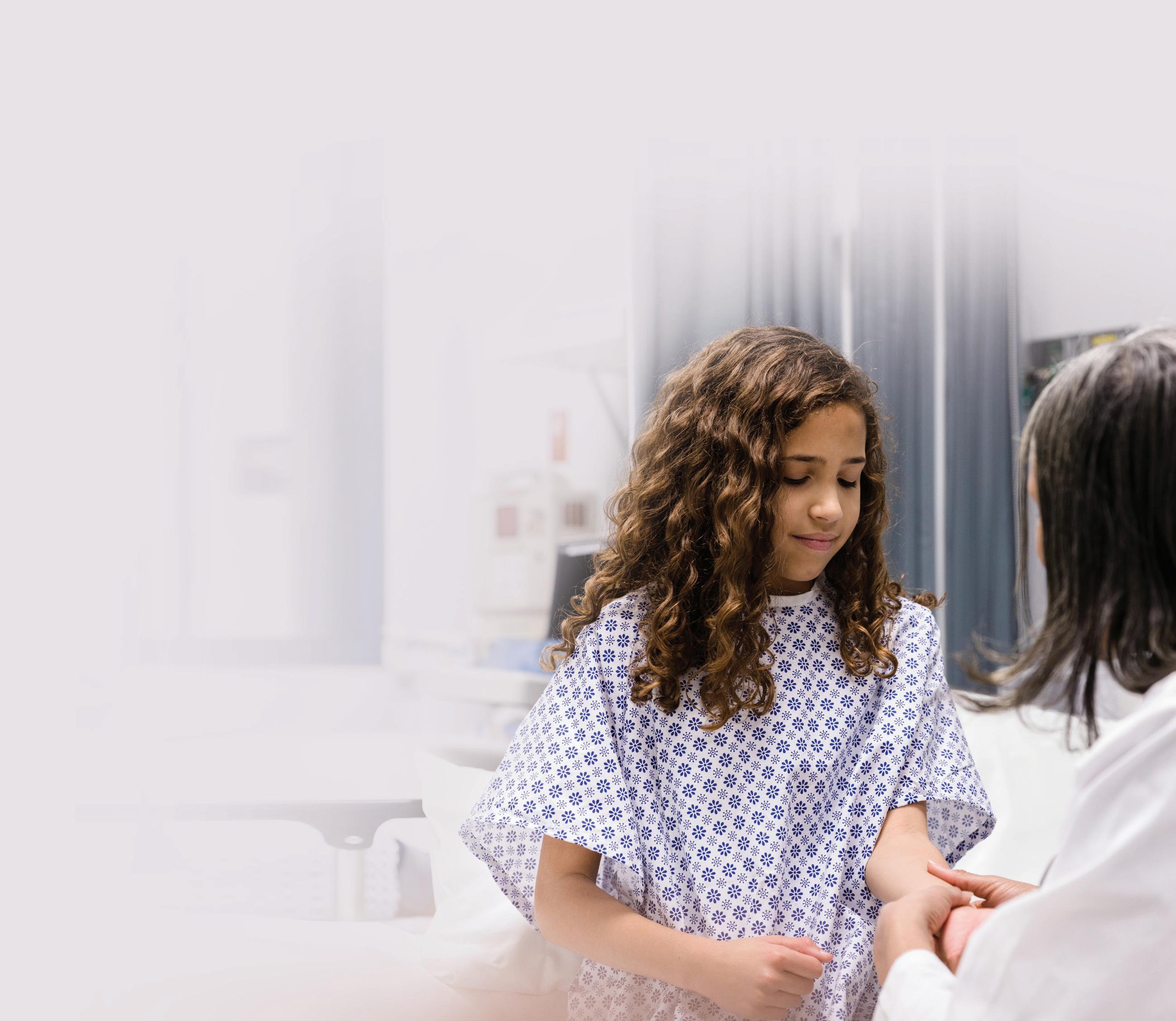
• Spacious, comfortable treatment areas
• Pediatric care team available 24 hours a day, 7 days a week
• Convenient, easy to access parking
• Separate entrances for pediatric and adult patients
• State-of-the-art treatment and triage rooms
We’re ready to provide our young patients with outstanding emergency care that doesn’t take them too far from home.
Learn more at rwjbh.org/HudsonCounty
NON PROFIT U.S. POSTAGE PAID
Permit #324
Harrisburg, PA




























 ROBERT A. GRAEBE, MD
LENA L. MERJANIAN, MD
NICOLE M. MONTERO LOPEZ, MD
ROBERT A. GRAEBE, MD
LENA L. MERJANIAN, MD
NICOLE M. MONTERO LOPEZ, MD
































